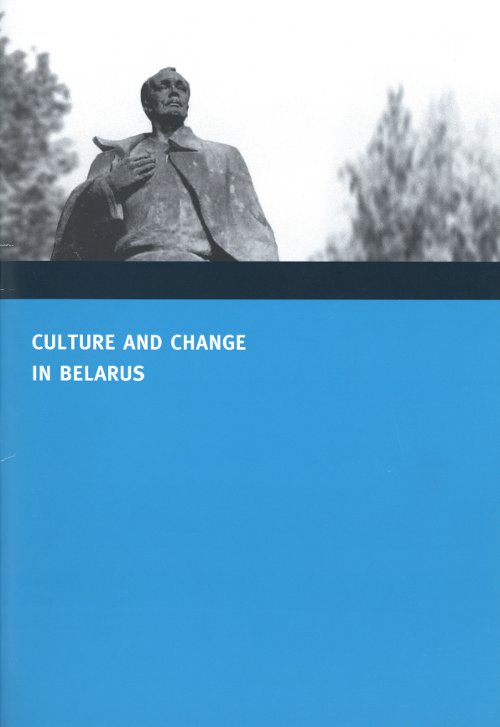- Kamunikat.org
- Бібліятэка
- Кнігазборы
- Калекцыі
- Іншае
Culture and Change in Belarus
With the recent eastward enlargement of the European Union, Belarus, Ukraine and Moldova have become immediate neighbours of this community. In close reach of the EU, merely on the other bank of the Bug and Prut rivers and just across the Carpathian Mountains, lies a rich and varied historical and cultural heritage, new landscapes and sites of interest, curious opportunities for exchange and business, and new people to get to know. A fascinating space, until now largely unfamiliar to many in the EU, has opened up in Europe’s East and remains to be discovered. Yet this new proximity to the eastern neighbourhood also represents a formidable challenge. After long decades of forced separation, Belarus, Ukraine and Moldova now struggle to find their place in the European community. Difficult reforms need to be undertaken to establish democracies, market economies and open societies. In short, the eastern neighbourhood of the European Union is as complicated, as it is curious. In helping to address some of the challenges facing the EU’s eastern neighbourhood, as well as bringing the three countries to the attention of Europeans, culture can be a powerful tool. Experience has shown how cultural work, exchange and relationships can contribute to reconciling conflicts, developing communities, improving the quality of life and building links across historical divides, time and distance in Europe.
- Дата выхаду: 2008-01
- Выдавец: , The German Marshall Fund of the United States
- Памеры: 44 s.
- Катэгорыя: Культура
- Copyright: © 2008 by The German Marshall Fund of the United States, European Cultural Foundation
- Кнігазбор:
- BTH — бібліятэка Беларускага Гістарычнага Таварыства, ul. Proletariacka 11, Białystok (папяровы асобнік)
- Інвэнтарныя нумары: BTH — 4662
Пры выкарыстаньні матэрыялаў у Інтэрнэце прамая гіпэрспасылка на Kamunikat.org абавязковая.
Ідэя сайту Яраслаў Іванюк
